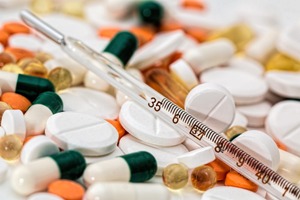Anujit Mitter checks out any possible cause for alarm about medicines for the elderly in the intense heat spell in Bengal.
The mercury has been soaring high in Bengal and the discomfort index is touching new highs.
More bad news has emerged with the meteorological department forecasting the southwest monsoon hitting the Kerala coast at least five days late this year.
The prolonged hot and sultry weather have triggered concern among the elderly about the side-effects of their regular medication.
But doctors mostly attribute these misconceptions to the imaginative minds of people and their affinity to look these up these on Internet search engines.
Dr Avik Basu, general practitioner and intensivist, says: “There’s nothing to panic regarding medication causing ill-effect on health during the hot season. Except for those medicines which lower the blood pressure or increase urination, no other drug is likely to adversely affect one’s health, be it an elderly person or a younger one.”
“Since we sweat a lot during summer, so naturally, our body water content is expected to be on the lower side during this time. But we compensate easily by consuming enough fluids,” he adds.
But Dr Basu adds a note of caution: “However, patients taking medicines like Lasix urinate more compared to a normal person. So, they are advised to drink more water during the summer months, keeping in mind the optimum fluid intake for such patients.”
“One must not forget that Lasix is prescribed to a patient, who has fluid overload in his body and therefore, liberal fluid intake to compensate for the urinary loss of water during summer is never advisable irrespective of his age.”
Asked about clean chit to all other kinds of medicines, the doctor mentions: “Another group of medicines that may lead to some distress is anti-hypertensive. Extreme heat may lead to blood pressure fluctuations, mostly keeping it on the lower side. So, the dose of blood pressure medicines may need to be adjusted depending upon daily BP monitoring. Elderly people are more at risk of hypertension since their BP regulatory mechanisms may be not functioning up to the mark due to senility.”
“Except for these two groups of medicines, I believe there’s not much to be worried about. Rather, medicine strips should not be kept in heat exposed areas of the house since that may alter the medicine’s chemistry and its functions. That’s why we advise to store drugs in cool dry places,” signs off Dr Basu.
Pic credit: https://pixabay.com/photos/thermometer-headache-pain-pills-1539191/



